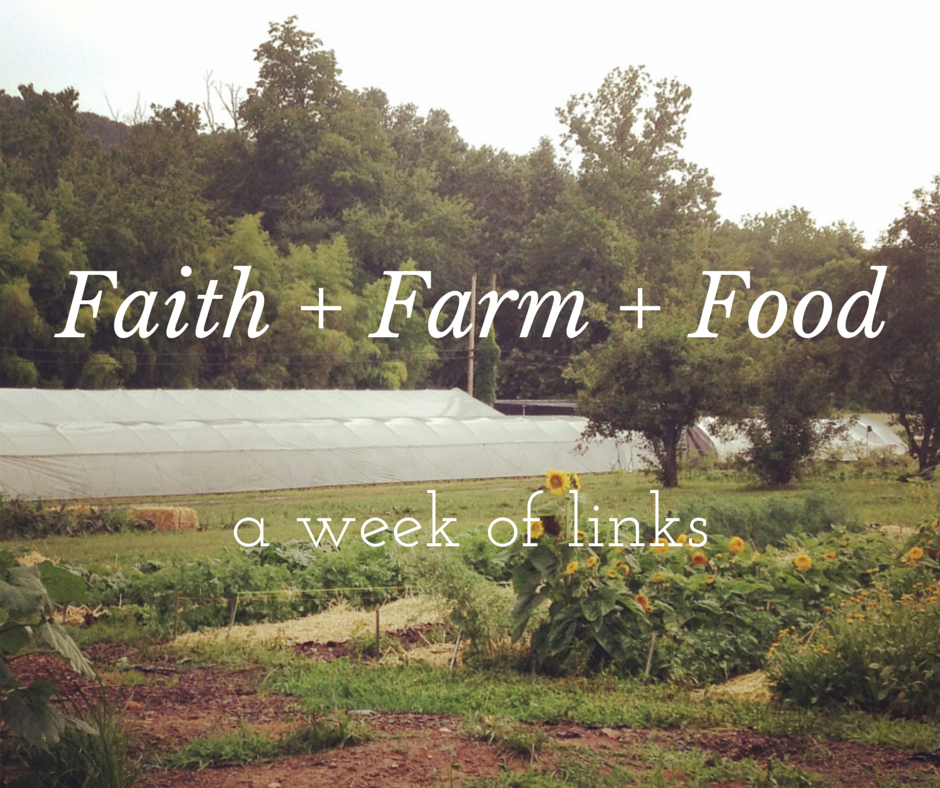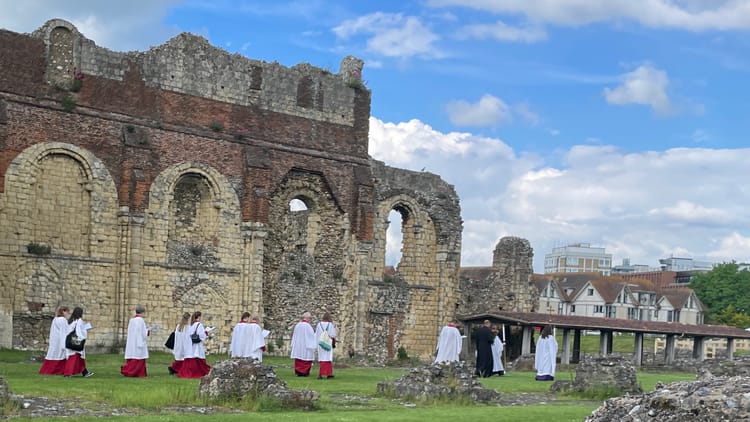Food & Faith Links: Denominations, Seminaries & Church Curricula

As I prepare for next month’s meeting through which I hope to be part of launching a Faith/Farm/Food Network, I’ve been inspired to comb through my memory and the internet for people and organizations already working at the nexus of this conversation, and resources to help us move forward.
It has struck me that the best way to compile these links would be in an online database which could be curated by multiple people and searched by multiple keywords, but that’s beyond my present capacity. Consider this a brain dump from me to you. And at the end, there’s a request: could you let me know what I’m missing?
I’m sure there is wonderful work happening in many different faiths, but since the focus of this blog is the work of the church, this link roundup focuses on Christian organizations and a few interfaith organizations. If you know of similar work happening in Buddhist, Hindu, Jewish, Muslim, or other faith traditions, please leave a link in the comments!
I’ll be posting links in a different category each day this week. Here’s the plan:
Monday: Faith-based farms and gardens integrating Christian spirituality or faith formation
Tuesday: Regional faith-based food initiatives
Wednesday: Denominationally- and seminary-based work on food & faith, as well as curricula for church programs on the intersection of faith and food
Thursday: Blogs, books & authors on food & faith
Friday: National non-profits working at the intersection of food & faith
If there is a project or person you want to be sure I include, feel free to contact me – or just leave it in the comments.
You’ll notice that church-based garden and feeding programs aren’t on the list. There are two reasons for this. First, there are so many that if I had included them, I would have been overwhelmed. Second, they are difficult to find through search engines – most are just a page of a larger church website. Maybe that’s a future list!
With no further ado… Wednesday’s list.
Denominationally-Based Work
The National Catholic Rural Life Conference integrates spiritual resources and advocacy work for sustainable food systems.
The Episcopal/Anglican Gardening and Agriculture Facebook page highlights ministries throughout the US.
The Episcopal Diocese of Los Angeles has begun Seeds of Hope, an initiative to use the land of the diocese to address food insecurity in the diocese.
Presbyterian Hunger Program’s Food & Faith Initiative has tons of resources including help for community/church gardens and for adult education. They also host webinars and send out an e-news… this Episcopalian is impressed!
Seminary-Based Work
The Anabaptist Mennonite Biblical Seminary recently hosted Rooted and Grounded, and papers from the conference are still available online.
Duke Divinity School hosted Summoned Toward Wholeness in 2013, and recordings are available on iTunes.
Methodist Theological School in Ohio features Seminary Hill Farm – a place of theology, ecology and good food for all.
The University of the South’s Beeken Center is hosting the gathering of a Faith/Farm/Food Network and partnering with the group of people attempting to launch said network.
Wake Forest University Divinity School’s Food, Faith & Religious Leadership Initiative is led by Fred Bahnson (one of the authors above). Here’s a great article about how it got started and how it works.
Yale Divinity School hosts and co-sponsors Nourish New Haven, a regular conference on food sustainability. Their Reflections magazine featuring the most recent conference will soon be posted here.
Curricula for Adults, Children & Youth
The Baltimore Food and Faith Project has a very comprehensive list of curricula for all ages. Go look at it! There’s no point reproducing all it lists here, but it is missing these three curricula:
United Methodist Women have published Food Faith & Me, a youth study.
Episcopal Relief & Development has published the Abundant Life Garden Project for elementary-aged students.
The Presbyterian Hunger Mission has published Food & Faith Practices, a short handout for adults.
What is missing? What can you add?





Member discussion